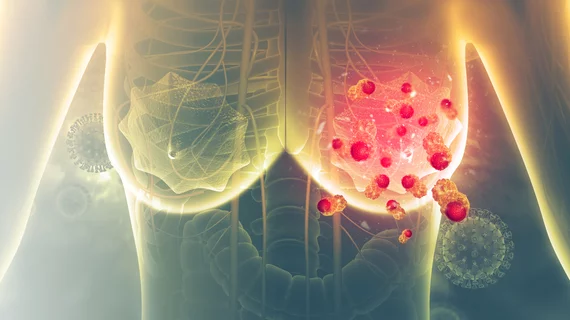Investor-owned RadNet foresees future where AI potentially reads all mammograms
Investor-owned RadNet foresees a potential future where artificial intelligence algorithms read all mammograms, presenting an opportunity to boost radiologist efficiency and cut costs.
Chief Financial Officer Mark Stolper recently discussed the Los Angeles-based imaging giant’s AI strategy on a call with investors, highlighting its 2020 purchase of DeepHealth. The firm is now working on a diagnostic mammography product it hopes to submit to the U.S. Food and Drug Administration later this year for use in 2022.
If approved, Stolper believes AI could make RadNet radiologists “significantly more productive,” increasing accuracy while catching breast cancer earlier. (A recent study estimated that its tool could spot cancer upward of two years sooner than standard interpretation in some cases.)
“We’ve made a big push into artificial intelligence; this is perhaps the biggest opportunity that our industry and our company has seen in its history,” he told investors Wednesday during the Sidoti & Company Spring 2021 Virtual Investor Conference. “We believe that in several years if not sooner, all mammograms are going to be read by artificial intelligence algorithms,” he added later.
During his presentation, Stolper estimated that nearly 20% of RadNet’s net revenue—about $1.098 billion in 2020—goes toward radiologist salaries. At roughly $200 million, mammography accounts for between $40-$50 million or 20% of that figure, he told investors. After the session, the CFO emphasized that he does not anticipate AI replacing radiologists but serving as part of a toolset to assist them and improve productivity.
RadNet and DeepHealth have submitted a second AI program for FDA approval in the fourth quarter of 2020 for mammography triage. In addition, the company also acquired artificial intelligence firm Nulogix back in 2019 and partnered with Whiterabbit.ai initially to target women who have missed mammography appointments.
DeepHealth is exploring AI tools to address other forms of disease in the future, with prostate MRI screening one possibility. Stolper noted.

